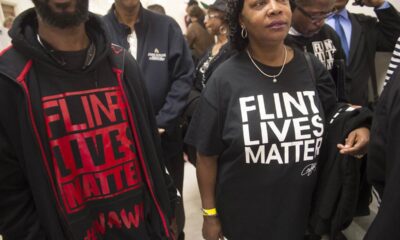Tech News
Artificial Intelligence

By Nehemi’EL Simms
W.E.B DuBois posited the great challenge of the 20th century would be the “color line,” inequity divided along racial lines. The fundamental contradictions surrounding race and the unequal distribution of wealth amassed from hundreds of years of exploiting free labor from millions of enslaved African people will inform, to a great degree, how Artificial Intelligence (AI) is integrated into our society. Pressing questions surrounding AI are being asked by members of our community. Who is programming AI? How will the advent of AI exacerbate disparities in overall racial equity? What is the percentage of African technology engineers to White technology engineers? Is AI a danger to us as working-class African people, or are we preparing ourselves for it? Where is AI finding utility in society today?
The current geo-political climate and its implications for AI’s use as a weapon is a great concern. In fact, according to former Missouri congressman and senior policy advisor William Lacy Clay Jr, the Department of Defense currently sinks billions of dollars into Artificial Intelligence research.
“Understanding the implications AI has for cybersecurity is an important part of the DOD’s mission. As outlined in the White House’s National Cybersecurity Strategy released on March 2, 2023, the DOD has been directed to explore and implement new applications of artificial intelligence as part of its larger charge to build resilience in the cyber and space domains and across the entire defense ecosystem. The FY 2024 DOD budget includes increased investments in cybersecurity that are related to AI, including $67.4 billion for cyber, IT, and electronic warfare capabilities, $145 billion for research and development activities, and $33.3 billion for space capabilities.”
The National Center on Science and Engineering Statistics (NCSES) reports that of the 146.4 million people that are in the workforce between the ages of 18-74, only about 34.9 million people (24%) work in a field associated with Science, Technology, Engineering, or Mathematics (STEM); and of that 34.9 million people only 18% were American Africans. Meaning that of all the major ethnic groups within this country, American Africans are the least represented.
The Department of Defense has reported in an article published on January 23rd, 2023, entitled “U.S Air Force Selects Howard University for Science Partnership” that the Department of the Air Force has selected Howard University as “the first Historically Black College or University to lead a University Affiliated Research Center.” The center will be focused on “tactical autonomy technology” for military systems, and Howard University will receive “$12 million per year for five years to fund research, faculty, and students.” The U.S. Department of Defense continues to build on African Genius, just like the innovation of Whitney’s cotton gin.
Young African scholars are weighing in on the conversation. “If we as African people ignore AI, we will have made a grave miscalculation,” one HBCU Ph.D candidate weighs in. The 26-year-old compares the effect AI will have on the social relations of working-class African people and the corporations of America to that of the introduction of the Gatling Gun to African-European relations of the late 19th century. But it wasn’t all doom and gloom. He left me with the pressing question of how AI can be used as a tool for African Liberation. I didn’t have an answer for him. Do you?











